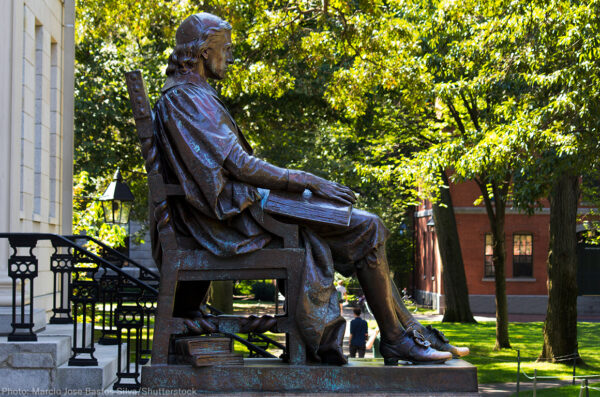ACLU Comment on Supreme Court’s Ruling Against Harvard and UNC’s Affirmative Action Policies
WASHINGTON — Today, the Supreme Court issued two rulings in Students for Fair Admissions v. Harvard and Students for Fair Admissions v. UNC restricting schools’ ability to fully address systemic racial inequalities that persist in higher education – and hindering the ability of a university to select its student body.
The court, however, recognized that the values of diversity are “commendable goals” and that schools can consider applicants’ own discussion of how race has impacted their lives. Importantly, in the opinion by Chief Justice Roberts, the court emphasized that “nothing in this opinion should be construed as prohibiting universities from considering an applicant's discussion of how race affected his or her life, be it through discrimination, inspiration, or otherwise.”
Moving forward, universities can and should also examine and improve their policies and practices to expand opportunity, including: broadening recruitment efforts to underserved communities, developing robust middle school and high school pipelines, increasing need-based supports, and improving campus climate.
In response to the ruling, ReNika Moore, Director of the ACLU's Racial Justice Program, issued the following statement:
“The Supreme Court's decision today does not change the responsibility of colleges and universities to increase educational opportunities for students of color. Colleges have long touted diversity as imperative to creating enriching educational environments for all students — our institutions of higher education must double down on that commitment and advance policies that ensure every student gets a fair shot. In fact, colleges can still consider race in alternative ways and students can continue to discuss race and how it has shaped their character or unique abilities in the college admissions process.
“Our nation’s future as a thriving multiracial democracy depends on students having the freedom and opportunity to learn, work together, and understand what unites us. We will continue to fight to realize that future and remove the barriers and inequities Black, Latino, Native American, Asian American, and other underrepresented groups experience, not only in higher education, but throughout the K-12 system.”
In response to the ruling, Traci Griffith, Director of the ACLU of Massachusetts’ Racial Justice Program, issued the following statement:
“The movement against affirmative action is part of a larger effort to rewrite our nation’s history, erase the lived experiences of people of color, and obstruct our full and equal participation in our democracy. We’re seeing books by Black and LGBTQ authors banned from school curricula in an attempt to stop students at all levels from learning and talking about race and gender in public schools. We will continue to fight these discriminatory policies. We are united by our shared commitment to opportunity and freedom from discrimination and we know that when everyone has access to what they need to reach their highest potential, we all benefit.”
In response to the ruling, Kristi Graunke Legal Director of the ACLU of North Carolina, issued the following statement:
“Students should continue to discuss race and their lived experiences in the college admissions process. The decisions should not prevent colleges and universities from inquiring about such experiences in relation to their university missions. Nothing in the Court’s decisions in these cases should prevent that. We must invest in pathways that increase access to opportunities for students across all races and ethnicities, and address discrimination and systemic racial inequalities that persist.”
In August of 2022, the American Civil Liberties Union, the ACLU of Massachusetts, and the ACLU of North Carolina filed an amicus brief urging the Supreme Court to uphold universities’ ability to consider race in college admissions. In the brief, the ACLU argued that race-conscious admissions policies like affirmative action have helped address our country’s long history of discrimination and systemic inequality in education by increasing access for underrepresented groups who face systemic barriers to higher education. Additionally, a holistic, race-conscious admissions process is the extension of a university’s academic freedom to assemble a student body across all races and ethnicities.
This case is part of the ACLU’s .


